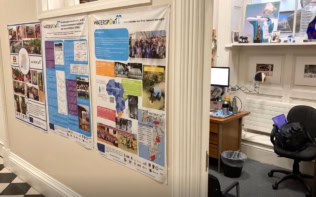By Margaret Harris
I’ve been mulling over this topic for a while, but a pair of blog posts this week has finally prompted me to write about it. One of them, entitled “Why I won’t be studying physics at A-level” appeared yesterday in the education section of the Guardian newspaper. In it, the anonymous female author lists a number of reasons why she is leaving physics, including a lack of female teachers and an “uninspiring” GCSE physics syllabus that “seemed out of touch compared with the stem cells and glucoregulation we were studying in biology”. There’s plenty to debate there already, but to me, the following paragraph was the most striking:
“I don’t dislike physics; neither do I find it boring or particularly difficult. But I do enjoy my other subjects more, so when it came to choosing between physics and geography for my fourth AS-level I opted for the latter. I thought it would be good to take a humanities subject to balance out the sciences.”
As someone who got a minor in medieval studies to “balance out” my physics undergraduate degree, I sympathize with this view. But I was lucky: I grew up in the US, which bases its higher education system on the broad “liberal arts” ideal. This meant I could study seven subjects right through my final year of secondary school, and at university, I still had plenty of freedom to explore. In fact, even after I picked physics as my “major”, I still took the occasional class on Shakespeare, history and (to the complete befuddlement of my later UK PhD supervisor) Byzantine art.
That’s where the other blog post comes in. In it, the University of Cambridge physicist Athene Donald laments the narrowness of the secondary education system in England and Wales, where “every boy or girl, at least those who aspire to A-levels and beyond, are forced into…either the square box that is arts/humanities/social sciences (AHSS) or the circular peg-hole that is STEM at 16, if not before”. No other developed country, Donald observes, asks its students to choose between humanities and sciences so early.
That early specialization has, I think, serious consequences for people like the anonymous Guardian writer. Although she concludes her article by declaring that leaving physics is “my choice”, the act of making such a choice – and making it now, irrevocably, when she is just 16 or 17 – is not within her control. Put simply, the current system is biased against students with diverse interests. And in my view (and, it seems, Donald’s as well) both students and society are ending up worse off because of it.



